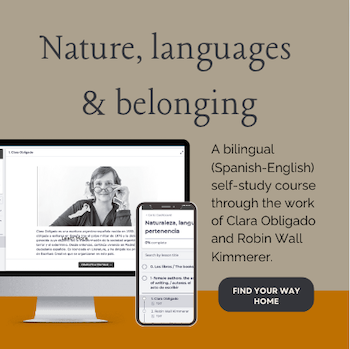Spanish has many verbs that are used for specific types of change or transformation, and if the change is sudden or involuntary. Many of those verbs mean “to become” in English but in Spanish they are not interchangeable because they have very specific meanings for particular situations.
The next four verbs can be translated with “to become, to get”: Hacerse, Volverse, Quedarse and Ponerse but they are used in very different situations to express different things.
Hacerse: Change of age, changes in the ideology, profession and other “external” aspects. It can be used with professions, ideologies and a change of degree in personal attributes (ie. rich – poor, strong – weak, young – old…). They express a voluntary change caused by an effort or a gradual process.
– Mi madre se está haciendo vieja.
– My mum is getting older.
– La niña se está haciendo mayor.
– The girl is growing up.
– Pepe se ha hecho profesor.
– Pepe has become a teacher.
– Isabel se ha hecho musulmana.
– Isabel has become a muslim.
Ponerse: Express a momentary change of situation, in health, physical appearance, color, mood or behavior, without indicating if it is permanent or not.
– Me he puesto nerviosa cuando he visto a mi jefe.
– I got nervous when I saw my boss.
– Ana se ha puesto enferma.
– Ana has become ill.
– María se ha puesto roja cuando Danny la ha mirado.
– Maria blushed when Danny looked at her.
– Me he puesto muy gorda después de las Navidades.
– I have put on lots of weight after Christmas.
– Petra se ha puesto triste cuando Luis se ha ido.
– Petra got sad when Luis left.
Volverse: Change of character or behavior as permanent. It is normally used to express an involuntary change referred to negative changes (but not always).
– Jose se ha vuelto muy tacaño.
– Jose has become very stingy.
– Desde que es jefe se ha vuelto insoportable.
– Since he’s a boss, he has become insufferable.
– Ana se ha vuelto más amable desde que es madre.
– Ana has become nicer since she’s a mother.
Quedarse: Change as a result of another circumstance. Normally is about negative changes and the most common cases are the permanent body changes (ie. blind, deaf, bold, pregnant…) or a family situation (ie. widow or orphan). It can also be used to express an emotional change caused by another situation, although in those cases we can choose between “ponerse” and “quedarse”.
– Bea se ha quedado coja tras el accidente.
– Bea became lame after the accident.
– Antonio se quedó viudo a los 50 años.
– Antonio widowed when he was 50.
– Me he quedado preocupada después de hablar con ella por teléfono.
– I got worried since I talked to her on the phone.
These are only four of the most common verbs of change, but there are more than we will go through in the next post. As you can see, these four verbs are reflexive, they end in “se“: hacerse, ponerse, volverse and quedarse. Remember to use the corresponding personal pronoun (me, te, se, nos, os, se) before the verb when you conjugate them, because those verbs without “se” mean a completely different thing: poner: ‘to put’, quedar: ‘to have an appointment’, hacer: ‘to make / to do’, volver: ‘to return’.
Now I will leave you with a short story that will help you to remember this four verbs of transformation in Spanish in the video below.
Story [Translation]
Hi, I am María and I’m a very normal person, but throughout my life I have changed a lot.
I am very a very shy person, so when I am with strangers I “get very nervous” and sometimes I “blushed” as well.
Since I am a little girl I always knew what I wanted to do when I was an adult. When I “grew up” I “became a teacher”.
The first time that I was offered a teaching job in a school in France, “I got very happy”, in those nine months I learned a lot, but I “was very sad” when the school year was over and I had to go back to Spain.
It has been four years since I work remotely, teaching Spanish via Skype, that’s why I can travel very often. Since I travel, I’ve “become more open minded and understanding” and also “I’ve become a little bit more adventurous”.



Very well put explanation thanks
Clearest explanation I’ve yet come across. Well presented making them easy to learn!